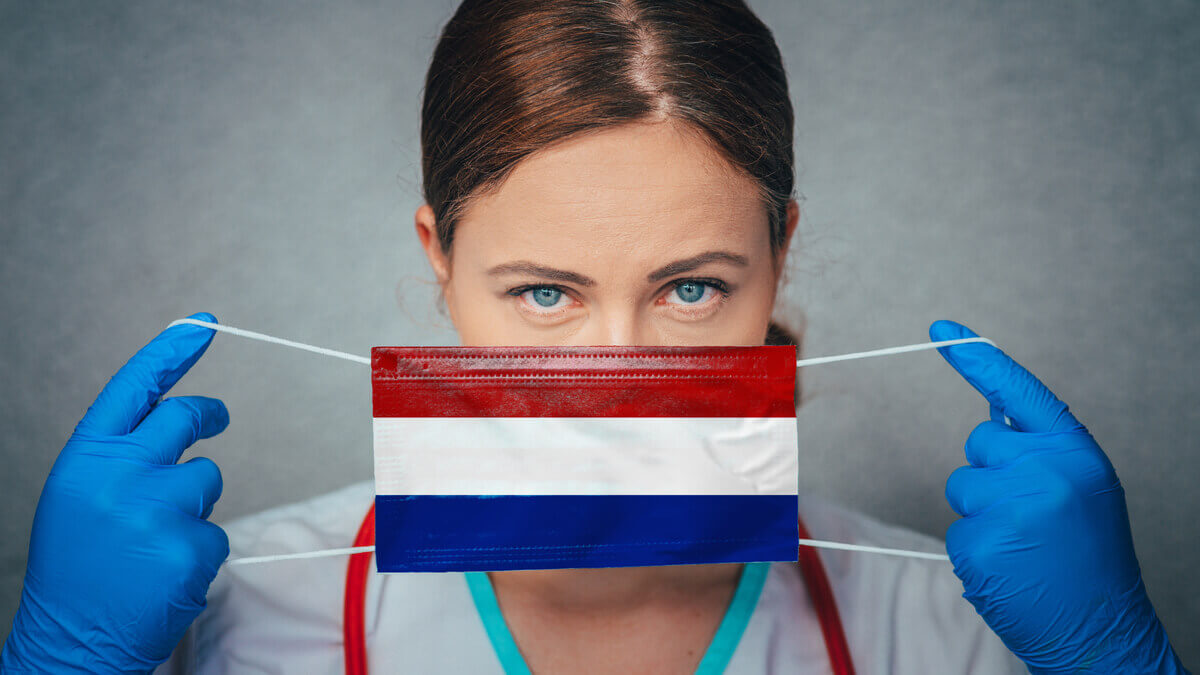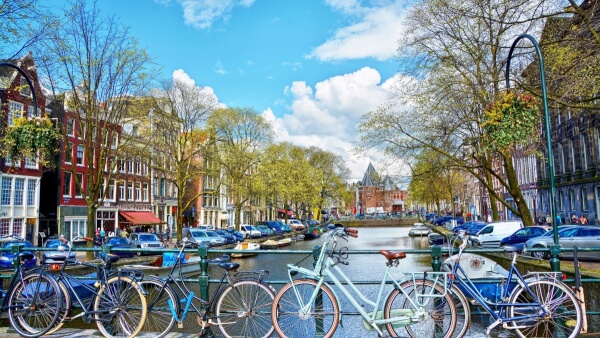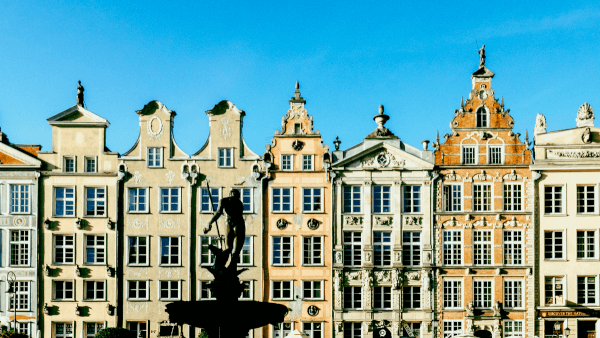Top 5 property management companies in Amsterdam
Are you looking for the best property management companies in Amsterdam? Find out all about the top local providers to take care of your home overseas.

The Netherlands is known for its universal and excellent standard of healthcare and it’s regularly rated as one of the best healthcare systems in the world. This is excellent news for anyone looking to relocate permanently or visit.
This article gives a brief overview of healthcare stats in the Netherlands along with what you’ll need to know about mandatory health insurance, finding doctors and specialists, and dealing with emergencies.
Healthcare in the Netherlands is offered through a universal public health insurance program, which is operated through private insurance¹.
Here are some useful resources if you’re in the Netherlands looking for medical support or advice:
| 🏥 | |
|---|---|
| In a health emergency | Call 112 for an ambulance — English is spoken |
| For urgent care | Visit your nearest Emergency Room — you may need to pay if your situation could have been better treated with a standard doctor’s appointment |
| For out of hours care | Look up your closest huisartsenpost — out of hours clinic |
| Find a family doctor | Look up doctor’s practices near you |
| Find a pharmacist | Find your nearest pharmacist |
Rules and restrictions related to the global Covid-19 pandemic are evolving all the time. If you’re in the Netherlands you’ll need to keep up to date with what’s required if you’re exposed to or fall ill with Covid-19, as well as options and information about vaccination, and Covid-19 related restrictions.
At the time of writing, rules are in place requiring people with Covid-19 to self isolate, along with household members. Face masks are required in some locations, and there are limits on the number of household visitors allowed daily.
| Learn more — and get the up to date information you need — on the National Institute for Public Health’s website² and the Netherlands’ Government’s coronavirus information page³. |
|---|
Health care in the Netherlands is known for having high standards, good facilities, and being available to all through a universal health care program delivered by private providers. Let’s dive into this in a little more detail now.
The Netherlands has a universal healthcare system. It’s managed by the government and supplemented by private insurers.
Anyone living or working in the Netherlands must obtain basic level health insurance (with or without additional coverage) from a Dutch provider.
Under 18s are automatically covered by their parent’s insurance, and health care allowances are in place for the lowest earners, to allow them to access mandatory insurance.
The state offers mandatory insurance that is funded from the state and managed by private insurance companies. The insurance companies receive funding from a regulator’s fund.
All primary care and long-term care services must be offered at a fixed price. It’s illegal for companies to refuse coverage for anyone or to impose punitive fees or conditions based on someone’s financial or health situation.
Insurance companies can supplement their required offerings with additional services. People with a lower income can apply for financial assistance for basic healthcare or if they want supplemental services but can’t afford them.
These are the main steps you should take in order to get healthcare in the Netherlands:
Step 1. Register with your local council to get a citizen service number (BSN)
Step 2. Choose and register for the health insurance of your choice (basic package or additional coverage) from the provider of your choice
Step 3. Register with a local doctor
To move to the Netherlands permanently, you’ll need basic Dutch health insurance, even if you have private international health insurance from a non-Dutch company.
The government tightly regulates the Dutch company plans and quality of the coverage. Everyone has the right to choose which provider they want, and insurers are required to cover everyone for a flat fee. There’s a mandatory deductible amount for Dutch health insurance, though, and this amount is set by the government.
In 2022 this is €385, but the government reviews this amount each year and, if needed, changes it⁴.
There are 2 types of health insurance coverage:
- Compulsory basic insurance
- Optional additional insurance
The government sets the standards for basic health coverage. Although described as basic, this typically includes a broad range of things like⁵:
|
|---|
Many of the services are likely to have out-of-pocket charges. The cost of basic Dutch medical insurance starts from around €100 per month. Monthly premiums with your provider are fixed for the calendar year.
You need to get insurance within 3 months of your arrival, but in order to do so you’ll need to register with your local council and get a citizen service number (BSN) first.
Healthcare coverage is mandatory — if you’re a Dutch resident or citizen aged over 18 you’ll need to take out private health insurance or risk a fine. Insurers are obliged to accept all applicants.These rules apply to expats staying in the Netherlands for 3 months or longer.
If you’re in the Netherlands as a family, the adults are required to take out Dutch health insurance, which then provides automatic coverage to family members aged under 18.
To figure out what healthcare might suit you, and get started with your application, take a look at this checklist to arrange basic health care as an expat, issued by the Dutch government.
If you’re a tourist from an EU/EEA country and staying in the Netherlands for less than 12 months, you can use your European Health Insurance Card.
Temporary visitors from outside the EU/EEA should arrange to have their own travel insurance or international health insurance while in the Netherlands.
If you’re in the Netherlands as an international student, and your stay will only be temporary, you may not be required to take out mandatory health insurance. However, you’ll need adequate private cover to make sure you’re able to access medical services when you need them.
It’s also worth noting that as soon as you start working or take an internship in the Netherlands you may need to also look into mandatory Dutch health insurance as your status will have changed⁶.
Health care is an important part of your budget when you’re planning a new life in the Netherlands. Costs for basic insurance may be on the low side compared to the US and many other developed countries — but coverage is mandatory so you’ll need to make sure the fees are built into your expected cost of living when you arrive.
The Netherlands has universal healthcare, but the government requires all adults living or working in the Netherlands to have basic insurance. The basic plan will cost € 100-120 out of pocket.
If you’re employed, your employer will pay a small percentage towards medical coverage as well. Children under the age of 18 don’t pay for health insurance.
The basic plan covers the basic standard of care like visits to the GP and hospital. Some treatments may have an excess for which you need to pay a portion out of pocket.
Many people also choose to get a higher level insurance coverage for an additional fee that compensates for other treatments not covered on the basic insurance package.
To give you a general idea of some costs you might run into, here are common costs for healthcare in the Netherlands:
| Description | Price⁷ |
|---|---|
| Basic insurance plan | From 115 USD |
| One-night hospital stay | 170 USD (bed only) |
| ER visit | 345 USD |
| Medical consultation (working hours) | 75 USD |
| Medical consultation (outside of working hours) | 115 USD |
When going to the Netherlands you need easy, cheap and quick ways to move your money.
Wise transfers always use the mid-market exchange rate — the one you see on Google — and always inform you in advance how much sending money to the Netherlands will actually cost you.
Please see Terms of Use for your region or visit Wise Fees & Pricing for the most up to date pricing and fee information
The Dutch have 3 types of hospitals: university hospitals, general hospitals, and teaching hospitals. Most of them are privately run.
When on a routine visit to a hospital to see a specialist, patients will be asked for details to register before the treatment.
The hospital will issue a patient ID card which you bring back with you on visits. The basic health insurance coverage will cover hospital care, though you may have to pay an excess fee depending on the treatment.
Once you have your health insurance, you should register with a local doctor, or huisarts in Dutch.
Your local doctor plays an important role in healthcare in the Netherlands; they are the first stop to receive any type of medical treatment. Most doctors speak English, so language shouldn’t be an issue.
You’ll need to register ahead of time to visit your local doctor. Many practices offer a telephone consultation hour to assist new patients. Not all practices will be taking new patients, but they may have a waiting list to join.
You can find a list of local doctors by visiting the Town Hall, which should provide you with a community guide or by searching online on local Dutch sites such as the Kies uw Huisarts (“Choose your GP”)⁸.
The good news is that also, most health insurance companies will be able to offer you a list of family doctors who will take on new patients
You must be referred by your local doctor in order to see a specialist. Most specialists work in a hospital setting, and unfortunately you may experience a long wait period.
Keep in mind that the basic health insurance package will cover a visit to a specialist, but an excess fee may apply, depending on the treatment.

In case of an emergency, call 112 or go directly to the emergency department of your nearest hospital.
In this type of situation you do not need to be pre-registered at the hospital. If you’re signed up to a local doctor they may also have an out-of-hours number⁹ that you can contact for help.
You might find these medical terms useful when you are in the Netherlands:
| Term/Expression | Dutch translation |
|---|---|
| Accident | Ongeval |
| Ambulance | Ambulance |
| Broken bone | Gebroken bot |
| Dentist | Tandarts |
| Family doctor | Huisarts |
| Emergency | Noodgeval |
| Heart attack | Hartaanval |
| Hospital | Ziekenhuis |
| Medical bill | Medische rekening |
| Medical insurance | Medische verzekering |
| Pharmacy | Apotheek |
| Prescription | Recept |
| Stroke | Beroerte |
These links will be helpful to you when you relocate to the Netherlands:
The Dutch healthcare system relies on private companies to treat patients, but is overseen by the government which enforces mandatory health insurance. Individuals can decide to enroll in only the most basic of insurance plans, but they can’t opt out completely except under extreme circumstances. This system leads to a few key differences to the US.
Insurers can’t turn people away based on their medical requirements, and can’t hike prices because someone may need more care than other people.
All insured Dutch people have a family doctor — who they must see before they can see a specialist or get care for more complex health needs.
If you visit a doctor or need medication in the Netherlands you may have to pay a coinsurance fee — but this is likely capped at a very low rate compared to what you’ll pay in the US.
All that said, US expats in the Netherlands do also report that doctors are far less likely to hand out meds like antibiotics — with lifestyle choices and fresh air being used to treat many minor, passing illnesses like colds and flu.
If you’re moving to the Netherlands, healthcare is one area where you won’t have to worry. The system is world-class and affordable for all. This guide will help you find the care and coverage you need when you are there.
Sources:
Sources checked on 02.21.2022
*Please see terms of use and product availability for your region or visit Wise fees and pricing for the most up to date pricing and fee information.
This publication is provided for general information purposes and does not constitute legal, tax or other professional advice from Wise Payments Limited or its subsidiaries and its affiliates, and it is not intended as a substitute for obtaining advice from a financial advisor or any other professional.
We make no representations, warranties or guarantees, whether expressed or implied, that the content in the publication is accurate, complete or up to date.

Are you looking for the best property management companies in Amsterdam? Find out all about the top local providers to take care of your home overseas.

Thinking about moving to the Netherlands? This article will guide you through the process of getting a BSN number in the Netherlands as an American.

Finding a job in Amsterdam will be way easier after reading this guide.

The Netherlands attracts large numbers of expats coming to work in the global companies based in Amsterdam, and in the many diplomatic institutions around the...

The Netherlands is a popular place for expats. It has great opportunities for work or study - and a balanced lifestyle for those who value socialising and...

New to living in Amsterdam? Getting setup in a new city always has its hurdles. From finding a place to live to getting around town - every city is...